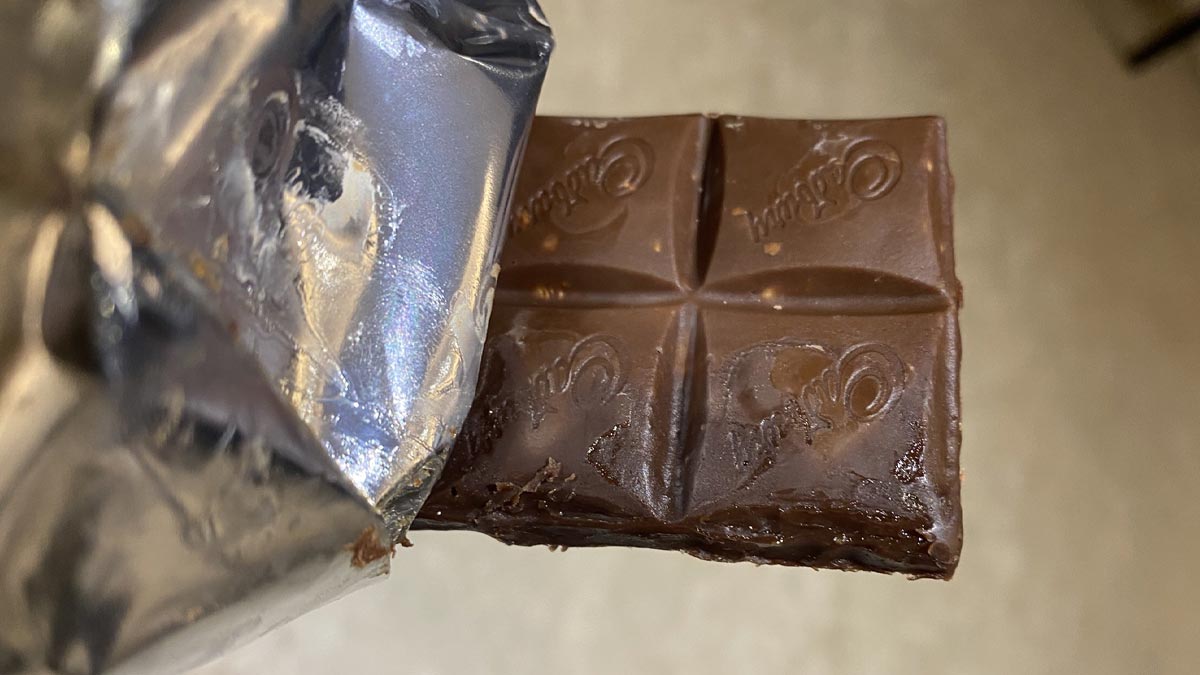
News surfaced today that a man from Hyderabad found fungus growing on Cabdury’s Dairy Milk, a famous and beloved chocolate in India. The catch is that the chocolate was well within its expiry date as it was manufactured in January 2024. The expiry period of Dairy Milk is 12 months from the month of manufacture.
Table of Content:-
Although Mondelez (formerly Cadbury India) responded to the man’s tweet asking him to get in touch, but by then the pictures posted on X (formerly twitter) was already viral. This is a second time that something dubious has been found in the Cadbury chocolate. Recently, another X user posted a video of a worm crawling inside another Cadbury‘s chocolate.
Found a worm crawling in Cadbury chocolate purchased at Ratnadeep Metro Ameerpet today..
— Robin Zaccheus (@RobinZaccheus) February 9, 2024
Is there a quality check for these near to expiry products? Who is responsible for public health hazards? @DairyMilkIn @ltmhyd @Ratnadeepretail @GHMCOnline @CommissionrGHMC pic.twitter.com/7piYCPixOx
While a lot can be said about the standard of manufacturing involved in these cases, one aspect that needs to be looked at is how excessive heat during summers can damage manufactured packaged goods.

Hidden Risks of Packaged Foods in Summer
As the temperatures rise and summer approaches, our eating habits often shift towards more convenient options, including packaged foods. While these foods offer convenience and often claim to be nutritious, they also come with a range of potential side effects. When exposed to summer heat, these foods can undergo various forms of spoilage, leading to potential health risks.
Heat Exposure
Packaged foods, particularly those containing fats, oils, and proteins, are susceptible to heat exposure. This exposure can accelerate chemical reactions within the food, leading to spoilage and degradation of nutrients. According to the Food Safety and Inspection Service, ‘one of the most common causes of foodborne illness is improper cooling of cooked foods,’ which is expectionally tough during summer months.
The manufacturing of these dairy milk is January 2024, expiry is best before 12 months from manufacture.
— That Hyderabadi pilla (@goooofboll) April 27, 2024
Found them like this when I opened it. Look into this @DairyMilkIn pic.twitter.com/ZcAXF2Db6x
Oxidation
Oxidation is a common process in which oxygen reacts with nutrients and fats in food, causing them to break down. In summer, higher temperatures can speed up oxidation, leading to rancidity in oils, off-flavors in snacks, and reduced nutritional value. According to a Chinese study, individuals who has high consumption of oxidised food had a higher risk of heart related diseases.
Moisture and Humidity
Humidity levels rise during summer months, creating an ideal environment for microbial growth and mold formation in packaged foods. Moisture can also compromise packaging integrity, leading to leaks or contamination.
Changes in Texture and Taste
Packaged foods like chips, crackers, and cookies can lose their crispness and become stale when exposed to heat and humidity. Beverages may develop off-flavors or lose carbonation, affecting their taste and quality.
Also Read: Expert Shares the Importance of Avoiding Ultra-Processed and Fast Foods During Pregnancy

Bacterial Growth
A study conducted by Penn State stated that heat can promote the growth of parasitic or bacterial worms in perishable packaged foods like deli meats, dairy products, and ready-to-eat meals. Consuming these foods after spoilage can lead to foodborne illnesses such as food poisoning, stomach cramps, diarrhea, and vomiting.
Chemical Contamination
Plastic packaging materials used for many packaged foods can leach harmful chemicals like phthalates and bisphenol A (BPA) when exposed to heat. These chemicals have been linked to hormonal disruptions, reproductive issues, and other health concerns. According to a Consumer Guide published by PEHSU (Paediatric Enviornmental Health Speciality Units).
Tips for Preventing Packaged Food Spoilage
Here are a few tips that can help you avoid these complications of packaged foods during the summer months:
- Store foods in a cool, dry place away from direct sunlight.
- Check expiration dates and discard expired or damaged packages.
- Use airtight containers for opened packages to prevent moisture and contamination.
- Avoid leaving packaged foods in hot cars or outdoor settings for extended periods.
- Be cautious when purchasing foods from unreliable sources or with damaged packaging.
Also Read: Can Processed Food Harm Your Eyes? Here's What You Need To Know
The case of Cadbury’s Dairy Milk chocolate laden with fungus and worms highlight the side effects of consuming packaged foods in summer and the standard of proper storage and manufacturing. By understanding the mechanisms of packaged food spoilage in summers and being vigilant about food safety practices, we can minimise the risks of consuming spoiled foods and protect our health during the warmer months.
Also watch this video
How we keep this article up to date:
We work with experts and keep a close eye on the latest in health and wellness. Whenever there is a new research or helpful information, we update our articles with accurate and useful advice.
Current Version